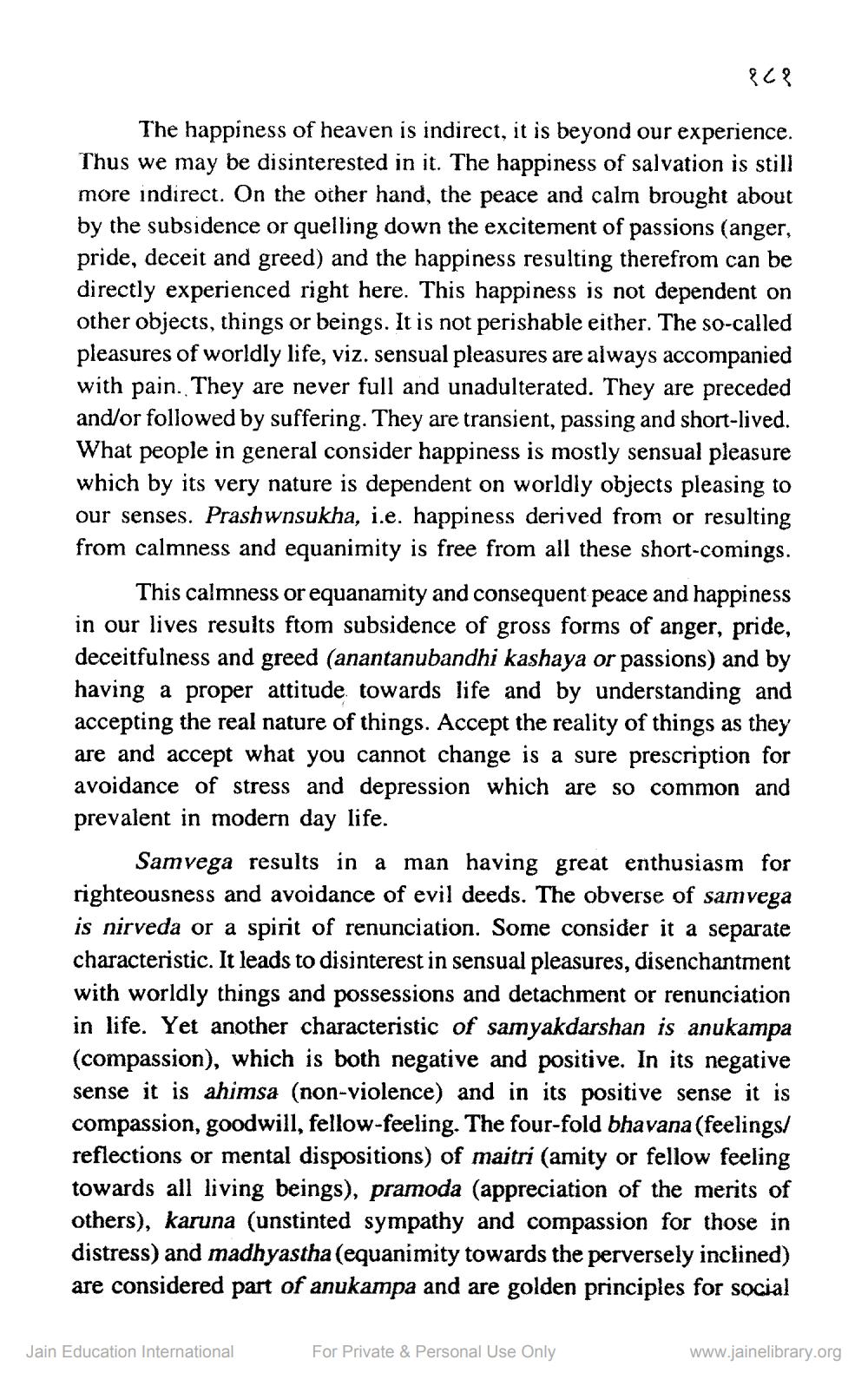________________
१८१
The happiness of heaven is indirect, it is beyond our experience. Thus we may be disinterested in it. The happiness of salvation is still more indirect. On the other hand, the peace and calm brought about by the subsidence or quelling down the excitement of passions (anger, pride, deceit and greed) and the happiness resulting therefrom can be directly experienced right here. This happiness is not dependent on other objects, things or beings. It is not perishable either. The so-called pleasures of worldly life, viz. sensual pleasures are always accompanied with pain. They are never full and unadulterated. They are preceded and/or followed by suffering. They are transient, passing and short-lived. What people in general consider happiness is mostly sensual pleasure which by its very nature is dependent on worldly objects pleasing to our senses. Prashwnsukha, i.e. happiness derived from or resulting from calmness and equanimity is free from all these short-comings.
This calmness or equanamity and consequent peace and happiness in our lives results ftom subsidence of gross forms of anger, pride, deceitfulness and greed (anantanubandhi kashaya or passions) and by having a proper attitude towards life and by understanding and accepting the real nature of things. Accept the reality of things as they are and accept what you cannot change is a sure prescription for avoidance of stress and depression which are so common and prevalent in modern day life.
Samvega results in a man having great enthusiasm for righteousness and avoidance of evil deeds. The obverse of samvega is nirveda or a spirit of renunciation. Some consider it a separate characteristic. It leads to disinterest in sensual pleasures, disenchantment with worldly things and possessions and detachment or renunciation in life. Yet another characteristic of samyakdarshan is anukampa (compassion), which is both negative and positive. In its negative sense it is ahimsa (non-violence) and in its positive sense it is compassion, goodwill, fellow-feeling. The four-fold bhavana (feelings/ reflections or mental dispositions) of maitri (amity or fellow feeling towards all living beings), pramoda (appreciation of the merits of others), karuna (unstinted sympathy and compassion for those in distress) and madhyastha (equanimity towards the perversely inclined) are considered part of anukampa and are golden principles for social
Jain Education International
For Private & Personal Use Only
www.jainelibrary.org




